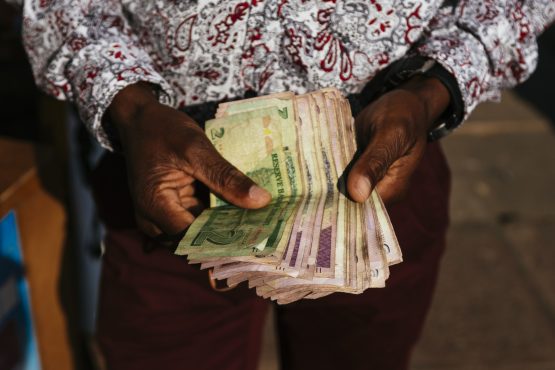Zimbabwe devalues its dollar to try stabilise currency

Zimbabwe’s currency weakened almost 14% in the weekly central bank auction, just days after Finance Minister Mthuli Ncube called for changes to how the foreign-exchange market is managed.
The devaluation is the latest policy move to stabilise the local currency. While the weekly auction has been used to set the interbank rate at which businesses are meant to price their goods, it’s been criticized as overly controlled.
The currency on Tuesday sold for 1,404 Zimbabwe dollars per US dollar compared with 1,212 a week ago. That extends the decline this year to 53%. It brings the value closer to the parallel market price of about 2,300 per greenback, according to ZimPriceCheck.com, a website that monitors official and unofficial exchange rates.
The gap between the official and black market has distorted pricing in the economy that’s fueled inflation and prompted a benchmark interest rate of 140% to contain costs.
The currency’s sharp double-digit decline on Tuesday is to help the formal exchange rate “catch up” to the black market, according to Shelton Sibanda, the chief investment officer at Imara Asset Management, the country’s oldest brokerage.
“I expect the formal rate to be depreciated further,” he said by text message on Wednesday. “If the central bank is really committed to a market determined rate, they should allow the daily willing-buyer willing-seller market to move significantly.”
The “managing” of the exchange rate had proved disastrous for local companies forced to surrender 15% of their foreign-exchange earnings at a discounted rate under the previous rules set by the central bank, according to Lloyd Mlotshwa, the head of research at the Harare-based IH Securities.
“While a parallel rate may always exist, the discount to the official rate should not exceed 10%,” said Mlotshwa. “At these levels, over time, we believe private-sector confidence can grow and efficiencies on the forex supply side can improve.”
The International Monetary Fund urged authorities to liberalise the exchange rate to help shore up the currency, instead of using the gold-backed digital money the government introduced last week.
“The foreign-exchange auction system will be further fine-tuned and will now auction a pre-announced envelope,” Ncube in an emailed statement on May 11. The central bank auctioned $14 million of foreign exchange on Tuesday. It plans to sell $15 million at next week’s sale.
The improved functionality of the system is expected to “gradually close the gap between the parallel and official rates,” according to Persistence Gwanyanya, a member of the central bank’s monetary policy committee.

